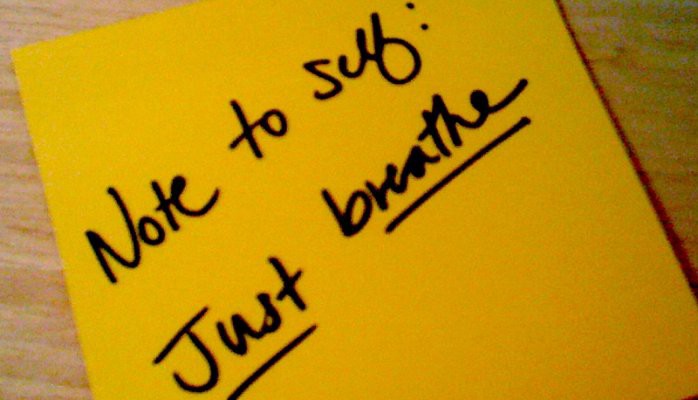As an individual who loves to move and to be moved, I am constantly learning life lessons from the activities in which I engage. After a yoga class, I was caught completely off guard by what the instructor commented to me and the resulting rhetorical reflection that it caused.
So what did she say? She noticed that I kept opening my eyes at the beginning of the class while we were supposed to be in a mindful meditation moment to set a goal or intention for the experience. Why did she make that comment, like so what if my eyes opened during that part of breathing?

Well, my first thought was: Yikes I was caught being distracted! Still not sure how to respond, I offered something to the effect of needing longer to go through a transition before being ready to be “still” since I had to rush to make it to the class as a result of other activities/deadlines, etc., etc. I was really thinking how was I supposed to jump out of the “gazillion things to do” activity going on in my head and after a few breathes, just automatically be ready to decide what the intention for that class was going to be — who it could be dedicated to and for what greater purpose, etc.? There were so many possibilities and now that created a whole new list of things going on in my mind. Wow.
Then it hit me, how we show up to do one thing is how we show up to do most things in life. How often do I jump into an activity or project with power and enthusiasm and then notice how my focus may become scattered so I find myself feeling stuck or blank like “hitting the wall”? As I did in the yoga class, I would be looking around the virtual room noticing what else is going on, if I’m missing something, how everyone else is doing, wondering which theme/goal/intention to pick and how to make it automatically pop into my head like all the other gazillion things do?
It dawned on me that taking those breathes at the beginning of the class was a part of the process to slow down the mind long enough to actually allow for a more productive purpose in going through all the physical effort. Hence, meaningful movement, not just movement for the sake of movement. This is actually a step toward reaching that “zone” or “zen” moment like a runners high and to bring the body and the mind in sync in such a way that they are united in purpose and desire. So, knowing that I may need more time to reach that point of stillness, will I allow extra time to transition into it so that the resulting activity will be even more purposeful and productive?
When I have taken the time to breathe and allow a moment of mindfulness prior to beginning a project, it seems to go so much smoother and then next steps appear to flow effortlessly like gliding on ice. Conversely, when I jump right into some tasks without taking the time to mindfully prepare, too often it takes longer, the next steps aren’t so obvious and it is definitely harder work.
Thanks to that question in the yoga class, I am again reminded how critical it is to breathe and allow time to transition my thoughts and action into a more productive outcome. How do you provide your friends, loved ones, colleagues, etc. the same opportunity to transition into increased productivity?

Wendy Guess, PhD
Speaker, Author, Professor, Health/Fitness Marketing Leader, Healthy Change Influencer!
Originally published at https://www.linkedin.com on August 4, 2015.


